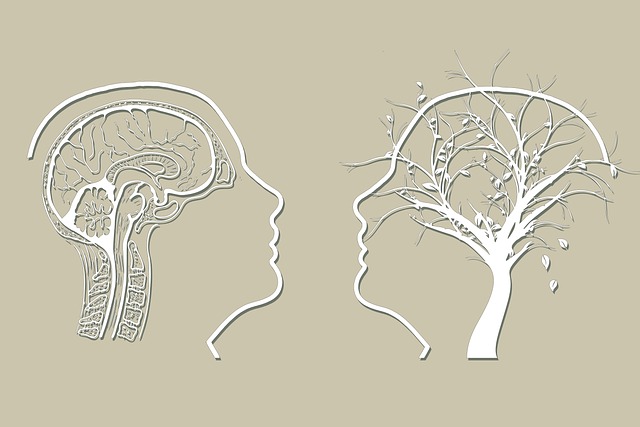In Highlands Ranch, effective mental health services rely on comprehensive risk management planning, utilizing independent medical evaluations (IMEs) to identify and address potential hazards in therapy settings. This proactive approach includes social skills training and emotional regulation techniques, creating a supportive environment that enhances safety and improves outcomes. A robust risk management plan involves meticulous client-specific risk assessment, professional resilience evaluation, understanding therapeutic environments, and adherence to crisis policies. Integrating wellness coaching, stress management workshops, and stigma reduction efforts further strengthens the system, mitigating burnout and enhancing communication, empathy, and coping strategies. This holistic approach ensures successful risk management in Highlands Ranch IME therapy while empowering professionals to navigate challenges resiliently for optimal client outcomes.
In the dynamic field of mental health, risk management is an indispensable practice for professionals navigating complex client needs. This article guides Highlands Ranch therapists and independent medical evaluators through a structured approach to risk assessment and mitigation, ensuring safe and effective therapy. We explore essential components, from understanding unique client populations to implementing evidence-based strategies, empowering practitioners to foster resilient treatment environments. By integrating comprehensive risk management, mental health professionals can enhance patient outcomes and optimize their practice’s longevity.
- Understanding Risk Management in Mental Health Practice
- Key Components of a Comprehensive Risk Assessment
- Strategies for Effective Risk Mitigation and Professional Growth
Understanding Risk Management in Mental Health Practice

In the field of mental health, risk management planning is an integral part of ensuring client safety and delivering effective therapy. This involves identifying potential risks and hazards within the therapeutic environment and implementing strategies to mitigate them. For professionals in Highlands Ranch, independent medical evaluations play a crucial role in this process, offering comprehensive assessments that can uncover underlying issues affecting patient outcomes.
Mental health awareness is key to recognizing these risks, which can range from client self-harm or suicide ideation to inter-professional conflicts. By integrating strategies such as social skills training and emotional regulation techniques into risk management plans, therapists can create a supportive environment. This proactive approach not only enhances the safety of both clients and practitioners but also fosters a more positive and productive therapeutic experience, ultimately improving outcomes for those seeking help in Highlands Ranch.
Key Components of a Comprehensive Risk Assessment

A comprehensive risk management plan for mental health professionals must include a thorough and nuanced risk assessment. This process involves several key components, such as identifying potential risks specific to each client’s unique situation, evaluating the professional’s own emotional resilience and coping mechanisms, and thoroughly understanding the therapeutic environment, including any organizational policies and procedures related to crisis intervention. By conducting high-quality independent medical evaluations tailored to Highlands Ranch therapy practices, mental health professionals can gain critical insights into these areas.
Incorporating Mental Wellness Coaching Programs Development, Stress Management Workshops Organization, and Mental Illness Stigma Reduction Efforts is essential for fostering a supportive ecosystem that enhances client outcomes and professional well-being. These initiatives not only mitigate risks associated with burnout and emotional exhaustion but also promote a culture of open communication, empathy, and effective coping strategies within the therapeutic setting. Such proactive measures are pivotal in ensuring the long-term success of risk management planning in Highlands Ranch independent medical evaluations therapy settings.
Strategies for Effective Risk Mitigation and Professional Growth

In the highland of mental health care, effective risk management planning is paramount for professionals navigating complex client scenarios. Strategies for mitigating risks go beyond adherence to legal and ethical guidelines; they encompass a holistic approach that includes regular self-care practices, ongoing professional development, and the integration of conflict resolution techniques. By fostering a culture of continuous learning, therapists in Highlands Ranch can enhance their ability to handle challenging situations with resilience and adaptability.
Integrating independent medical evaluations into risk management planning further strengthens therapeutic practices. These evaluations provide objective assessments, enabling mental health professionals to make informed decisions tailored to individual client needs. Through proactive self-care measures and strategic conflict resolution techniques, therapists in Highlands Ranch can ensure they remain at the pinnacle of their expertise, delivering optimal therapy while mitigating potential risks for both themselves and their clients.
Mental health professionals play a crucial role in helping others navigate their mental well-being, but they are not immune to risks. Implementing robust risk management planning is essential for protecting both clients and practitioners. By understanding the key components of risk assessment, adopting effective mitigation strategies, and embracing professional growth opportunities, therapists in Highlands Ranch can ensure they provide safe, high-quality therapy services. Incorporating independent medical evaluations into this process further strengthens risk management, fostering a healthier, more supportive therapeutic environment.














